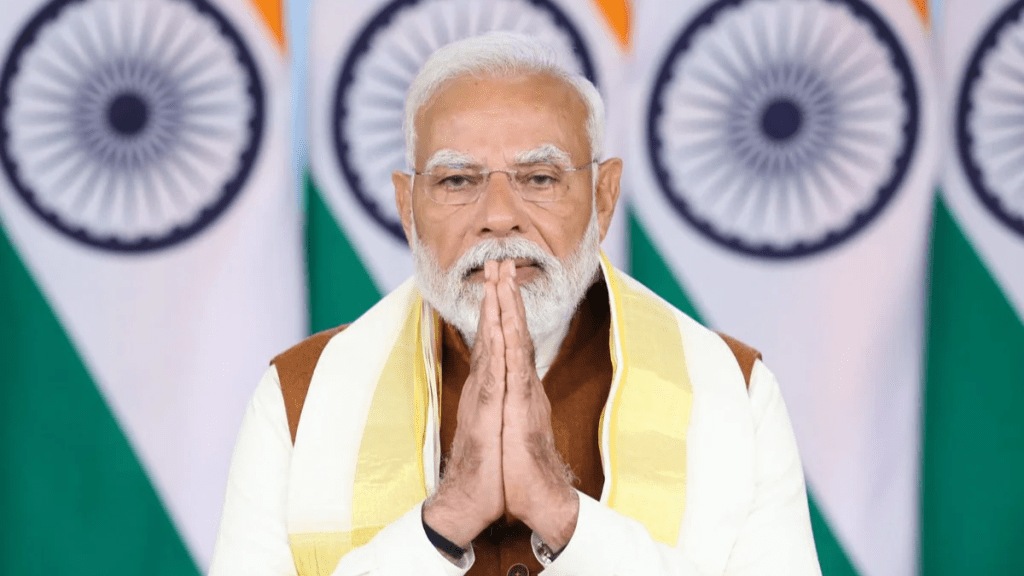Prime Minister Narendra Modi on Saturday said property value worth Rs 100 lakh crore has been unlocked in rural areas on the country under his government’s Survey of Villages Abadi and Mapping with Improvised Technology in Village Area (Svamitva) scheme.
Speaking at a media summit in the national capital, Modi said over three lakh villages have been surveyed under the scheme so far, and 2.25 crore people have got property rights.
Claiming that India will be the third largest economy in just a few years, Modi said: “A young nation needs the speed which it is seeing now. Earlier reforms were because of compulsion, not conviction. Now, it is the opposite.
”He said his government had opened many sectors to the private sphere, like space, which is seeing a boom of startups. “Commercial coal mining has been opened to the private sector. We are promoting privatisation in the renewable energy and power distribution sectors too. In this Budget, we have opened even the nuclear sector up for privatisation,” he said.
He said he had just returned from the US and France, and the world believes in India like never before, as was reflected in the Paris AI summit too. “India today is at the centre of the global future, and in some areas, we are leading it too,” he said.
He said with his government schemes, 25 crore Indians had been elevated from poverty. “We have got a neo middle class, who are aspiring for better lives. In this endeavour, we reduced income tax exemption limit to Rs 12 lakh in the recent Budget. This will spur economic activity in the nation.
”Calling upon industry leaders present at the event, Modi said: “A good business environment used to be a part of your wishlist. Within a decade, India’s banks have improved from the fragile state they were in before. Crores of Indians were out of the banking systems. We were one of the countries where access to credit was the most difficult. We worked on different levels — banking the unbanked, securing the unsecured and funding the unfunded. This was our strategy,” he said.
He said ten years ago, the argument was that when there are not even bank branches, how will financial inclusion happen? “Today, every village has a bank branch and a banking correspondent in a 5 kilometre radius. Access to credit increased through schemes like Mudra — we made Rs 32 lakh crore reach people who were not eligible for loans earlier. For MSMEs, loan is easy today – even street vendors and farmers can get loans now.
We are now giving loans in increased amounts and bank profits are also increasing. Ten years ago, you would talk about scams in banks. Now there is Rs 1.25 lakh crore of record profits between April-December for banks.”Modi went on to say: “It’s not that the headlines have changed; it’s the country – at the basis of which are banking reforms.
We have changed fear of business to ease of doing business. GST brought a single large market which has helped the industry a lot. Infrastructure development has also happened which has decreased logistical cost and increased efficiency. We have stopped many compliances, and now through Jan Vishwas 2.0, we are reducing even more compliances.
”He said that to reduce interference of government in public life, “we are coming up with a deregulation commission. In today’s India, another big change is how we are preparing for the future. It’s possible because of a proactive and sensitive govt. The foundation of Viksit Bharat is faith, trust.
Every citizen, every government, every business should have this element. To increase trust in citizens, the government is working with full power. We are giving innovators an environment of trust where they can incubate their ideas. We are giving businesses the trust that policies will remain stable.”

